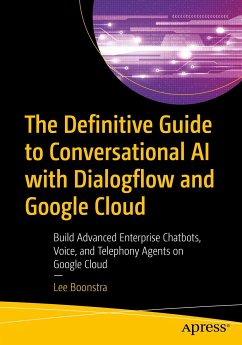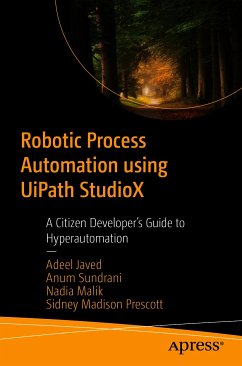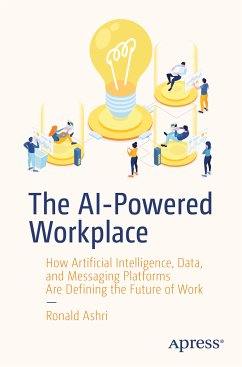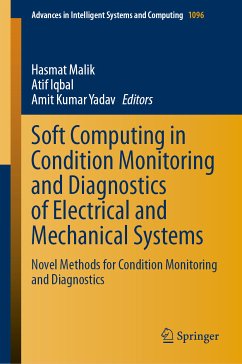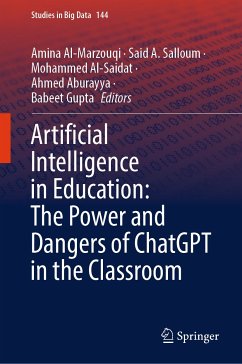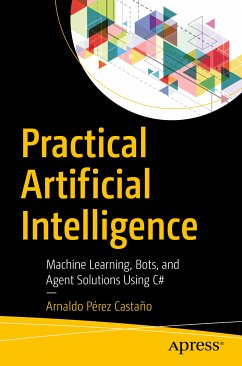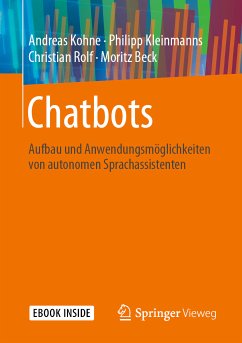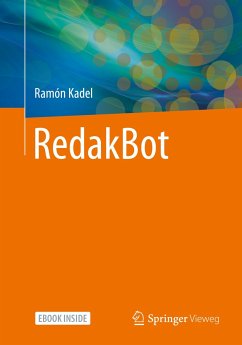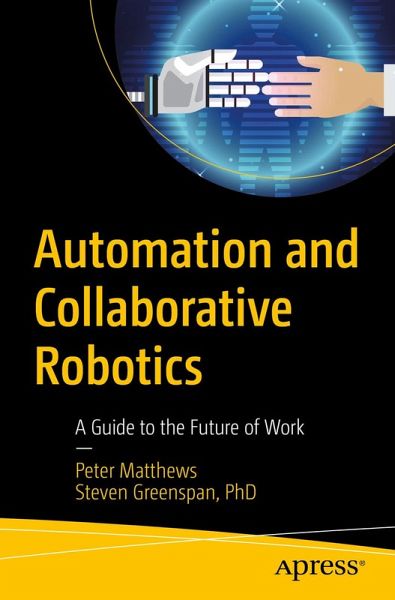
Automation and Collaborative Robotics (eBook, PDF)
A Guide to the Future of Work
Versandkostenfrei!
Sofort per Download lieferbar
40,95 €
inkl. MwSt.
Weitere Ausgaben:

PAYBACK Punkte
20 °P sammeln!
Understand the current and future research into technologies that underpin the increasing capabilities of automation technologies and their impact on the working world of the future.Rapid advances in automation and robotics technologies are often reported in the trade and general media, often relying on scary headlines such as "Jobs Lost to Robots." It is certainly true that work will change with the advent of smarter and faster automated workers; however, the scope and scale of the changes is still unknown. Automation may seem to be here already, but we are only at the early stages.Automation...
Understand the current and future research into technologies that underpin the increasing capabilities of automation technologies and their impact on the working world of the future.
Rapid advances in automation and robotics technologies are often reported in the trade and general media, often relying on scary headlines such as "Jobs Lost to Robots." It is certainly true that work will change with the advent of smarter and faster automated workers; however, the scope and scale of the changes is still unknown. Automation may seem to be here already, but we are only at the early stages.
Automation and Collaborative Robotics explores the output of current research projects that are improving the building blocks of an automated world. Research into collaborative robotics (cobotics) is merging digital, audio, and visual data to generate a commonly held view between cobots and their human collaborators. Low-power machine learning at the edge of the network can deliver decision making on cobots or to their manipulations. Topics covered in this book include:
What You Will Learn
Who This Book Is For
Technical and business managers interested in the future of automation and robotics, and the impact it will have on their organizations, customers, and the business world in general
Rapid advances in automation and robotics technologies are often reported in the trade and general media, often relying on scary headlines such as "Jobs Lost to Robots." It is certainly true that work will change with the advent of smarter and faster automated workers; however, the scope and scale of the changes is still unknown. Automation may seem to be here already, but we are only at the early stages.
Automation and Collaborative Robotics explores the output of current research projects that are improving the building blocks of an automated world. Research into collaborative robotics (cobotics) is merging digital, audio, and visual data to generate a commonly held view between cobots and their human collaborators. Low-power machine learning at the edge of the network can deliver decision making on cobots or to their manipulations. Topics covered in this book include:
- Robotic process automation, chatbots, and their impact in the near future
- The hype of automation and headlines leading to concerns over the future of work
- Component technologies that are still in the research labs
- Foundational technologies and collaboration that will enable many tasks to be automated with human workers being re-skilled and displaced rather than replaced
What You Will Learn
- Be aware of the technologies currently being researched to improve or deliver automation
- Understand the impact of robotics, other automation technologies, and the impact of AI on automation
- Get an idea of how far we are from implementation of an automated future
- Know what work will look like in the future with thedeployment of these technologies
Who This Book Is For
Technical and business managers interested in the future of automation and robotics, and the impact it will have on their organizations, customers, and the business world in general
Dieser Download kann aus rechtlichen Gründen nur mit Rechnungsadresse in A, B, BG, CY, CZ, D, DK, EW, E, FIN, F, GR, HR, H, IRL, I, LT, L, LR, M, NL, PL, P, R, S, SLO, SK ausgeliefert werden.



